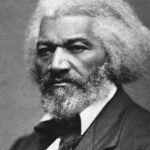Andrew Jackson Beard was an African American inventor and entrepreneur known for his significant contributions to the development of the automatic railroad car coupler. Born in 1849 in Woodland, Alabama, during a time of slavery, Beard’s life unfolded against the backdrop of significant historical events, including the Civil War and the Reconstruction era.
Early Life: Beard grew up in a slave family on a plantation owned by a man named Archibald Irwin. After the Emancipation Proclamation in 1863, he gained his freedom and started his life as a free man. With limited formal education, Beard demonstrated an aptitude for mechanics and invention from a young age.
Invention of the Jenny Coupler: One of Beard’s most notable inventions was the automatic railroad car coupler, commonly known as the “Jenny Coupler.” Before his invention, railroad cars were coupled manually, a dangerous and time-consuming process that often resulted in injuries and fatalities for railroad workers.
Beard’s innovative coupler, patented in 1897, featured a mechanism that allowed cars to be coupled together simply by bumping into each other. The design improved safety and efficiency in railroad operations, reducing the risk of accidents and injuries associated with the manual coupling process.
Entrepreneurial Ventures: Following the success of the Jenny Coupler, Beard established the Beard Automatic Coupler Company in 1897. However, he faced challenges as the industry, dominated by larger corporations, was resistant to change. Despite these challenges, Beard continued to innovate, obtaining several other patents related to couplers and other railroad devices.
Later Life and Legacy: Andrew Jackson Beard’s contributions to the railroad industry were groundbreaking, revolutionizing safety and efficiency. His inventions not only transformed the railroad sector but also had a positive impact on the lives of countless workers.
Beard passed away on January 4, 1921, leaving behind a legacy of innovation and entrepreneurship. While his inventions were instrumental in improving railroad operations, the recognition of his contributions has sometimes been overshadowed by the historical challenges faced by African American inventors during that era.
In 2006, Beard was posthumously inducted into the National Inventors Hall of Fame, acknowledging his pioneering work in the field of railroad safety. Today, he is remembered as a trailblazer who overcame adversity to make lasting contributions to American industry and transportation.





